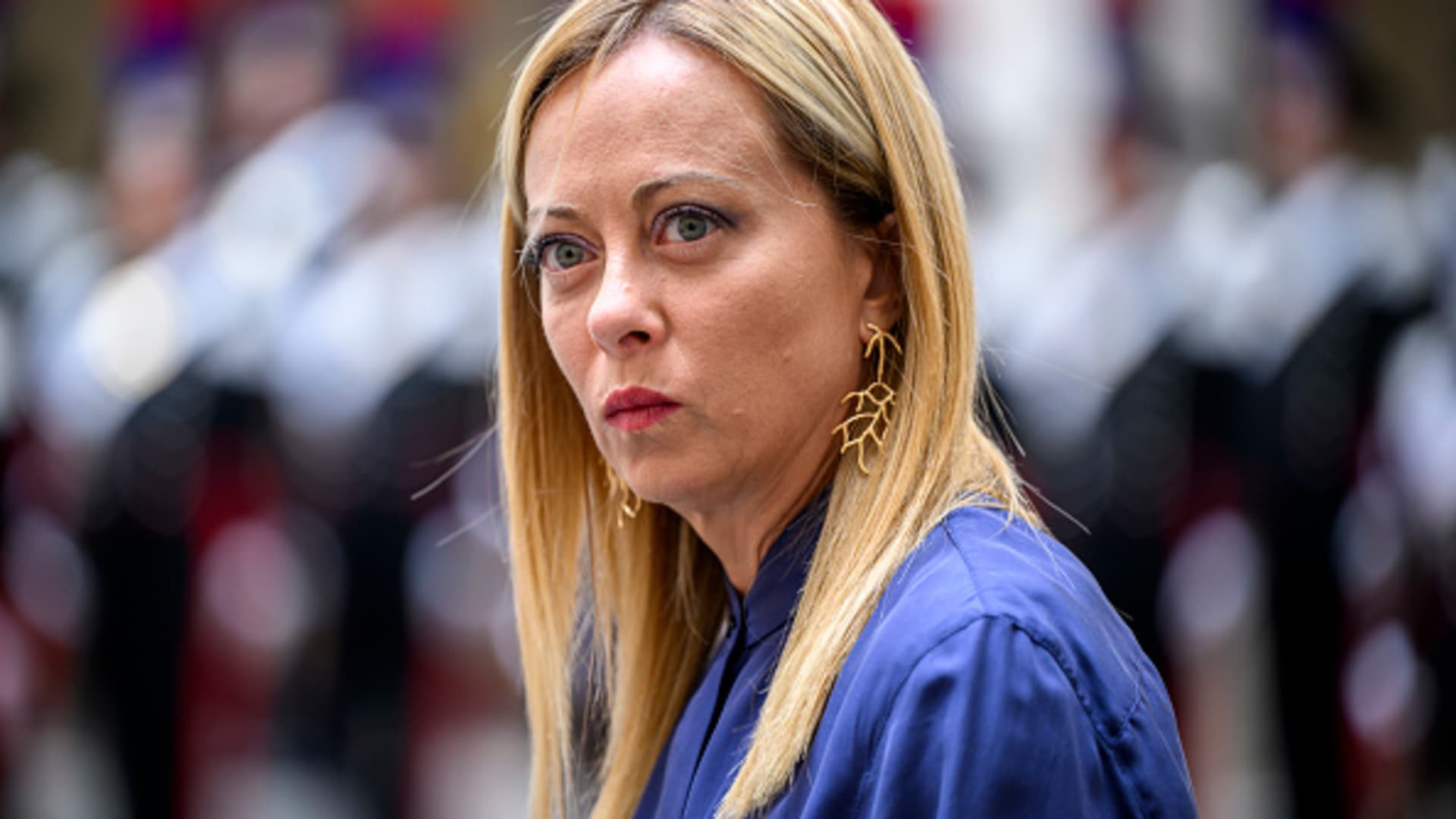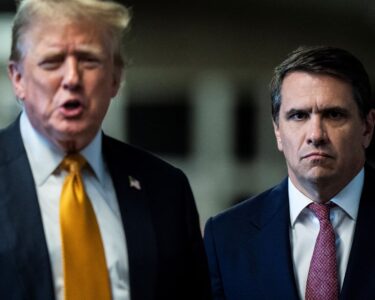After plunging into the political mainstream and winning over her more moderate counterparts in Brussels, hard-line Italian Prime Minister Giorgia Meloni is now shaking things up on home soil.
Europe’s main banking index dropped some 2.7% on Aug. 8 after Italy announced it would impose a 40% windfall tax on banks. The surprise move, which clearly caught traders off guard, was toned down within 24 hours.
Airlines have rebuffed other policy measures, with a new government plan to curb prices when flying to certain destinations. The Italian government is meeting airline executives next month and the European Commission, the executive arm of the EU, is already assessing whether the measure would comply with EU law.
Meloni was elected in October and, as well as being the country’s first female PM, is also the first from a far-right party since the end of World War II. So far during her mandate, Meloni has largely fallen in line with mainstream political positions at home and abroad, despite concerns from some that she may push her country to the fringes. She has not been at odds with officials at the European Union, for example. She has also made sure Italy has been a key supporter of Ukraine in the wake of Russia’s invasion, despite the fact that some of her Cabinet members have had close ties to the Kremlin.
Federico Santi, a senior analyst at consultancy Eurasia Group, told CNBC via email that her backtrack on the windfall tax “was a major misstep, in perception and substance.”
“This poorly-thought through measure was an abrupt reminder that Meloni’s government is mainly made up of right-wing populist parties, with a track record of erratic economic policy-making,” Santi said, adding however that he expects Meloni to “stay the course” on the fundamental aspects of government policy.
Erik Jones, a professor at the European University Institute in Italy, told CNBC he didn’t believe this was a more “populist” government than that witnessed over the past year, with Meloni and her finance minister, Giancarlo Giorgetti, trying to spend without running up huge deficits.
“On fiscal policy, even in the absence of binding EU rules, which remain suspended, the government has made efforts to continue a gradual fiscal adjustment, in line with EU recommendations – i.e. by keeping the deficit and debt on a, slowly, declining path and avoiding broad-based expansion that could feed inflation,” Eurasia Group’s Santi said.
Italy’s government debt to GDP stood at 144.4% in 2022, according to data from the International Monetary Fund. That’s expected to drop to 140.5% this year and then again to 138.8% in 2024. The Italian economy is seen growing at a rate of 1.1% this year and 0.9% in 2024, according to the IMF. This represents a fall from the 3.7% gross domestic product registered in 2022.
Despite the general expectation that the Italian government is unlikely to go down any more controversial avenues, analysts have mentioned two events that international investors should keep a close eye on.
“Investors should worry about the turmoil that is likely to surround this upcoming budget. There will be a lot of room for controversy that will create volatility. But I do not think that the basic policy will change or that the government will collapse,” Jones from the European University Institute said.
Governments across the EU have to submit their budgetary plans for the new year in October so the European Commission can assess whether they comply with EU rules. In the past, this process has raised tensions between Brussels and Rome.
For others, however, the major risk is a delay in receiving certain EU funds.
“This is a key factor underpinning public investment and growth through 2026, with important knock-on effects on the fiscal outlook,” Santi said.
The EU funds in question were agreed to at the height of the Covid-19 pandemic given the tumult and slowdown across the European economy. Italy’s the biggest beneficiary of the 750 billion euro ($814 billion) program given that its economy was the worst hit by the pandemic and resulting lockdowns. However, disbursements only happen after nations put forward certain measures and reforms.
The sheer volume of funds could make a critical impact on Italy’s economy.
“These delays are, for the most part, not the government’s own making, and Meloni remains intent on meeting NextGenEU commitments on paper — but external issues, high input costs, supply chains strain; and serious administrative shortfalls and bottlenecks will increasingly prevent the government from meeting its investment targets,” Santi added.
Read more of CNBC’s politics coverage:






